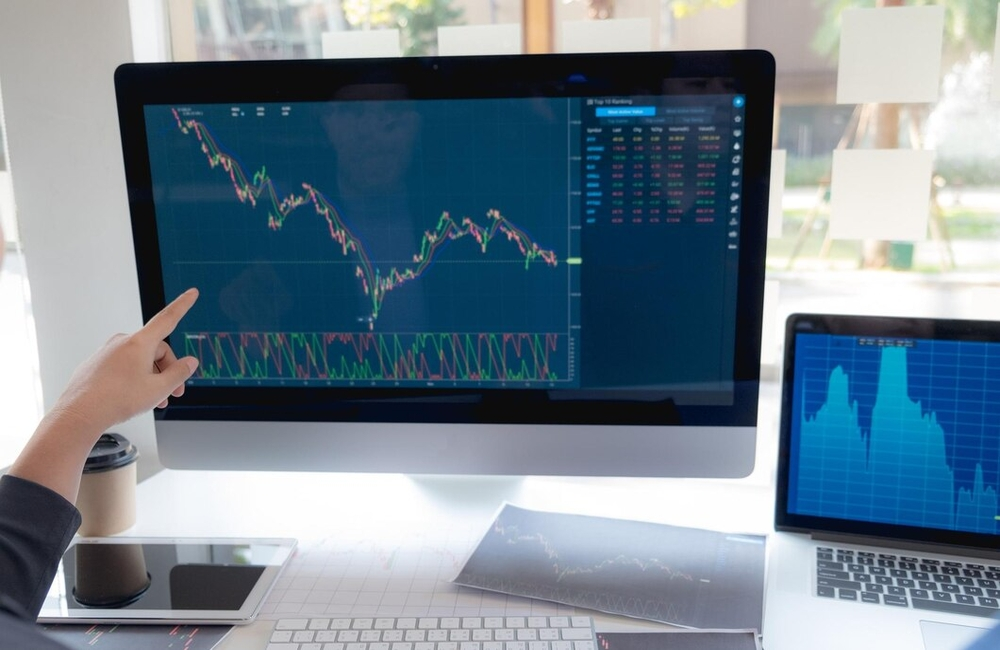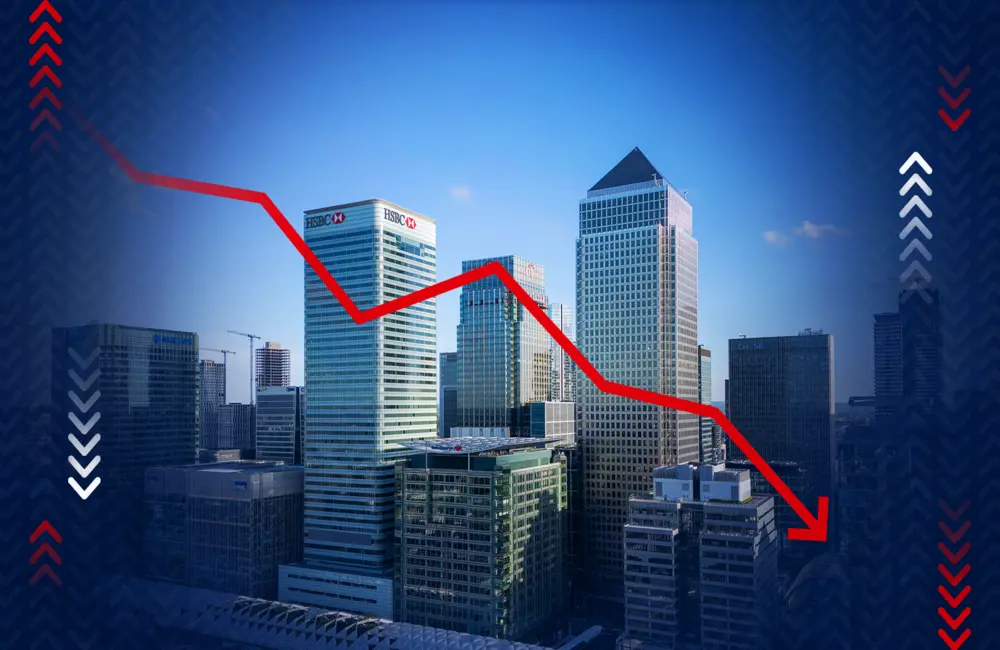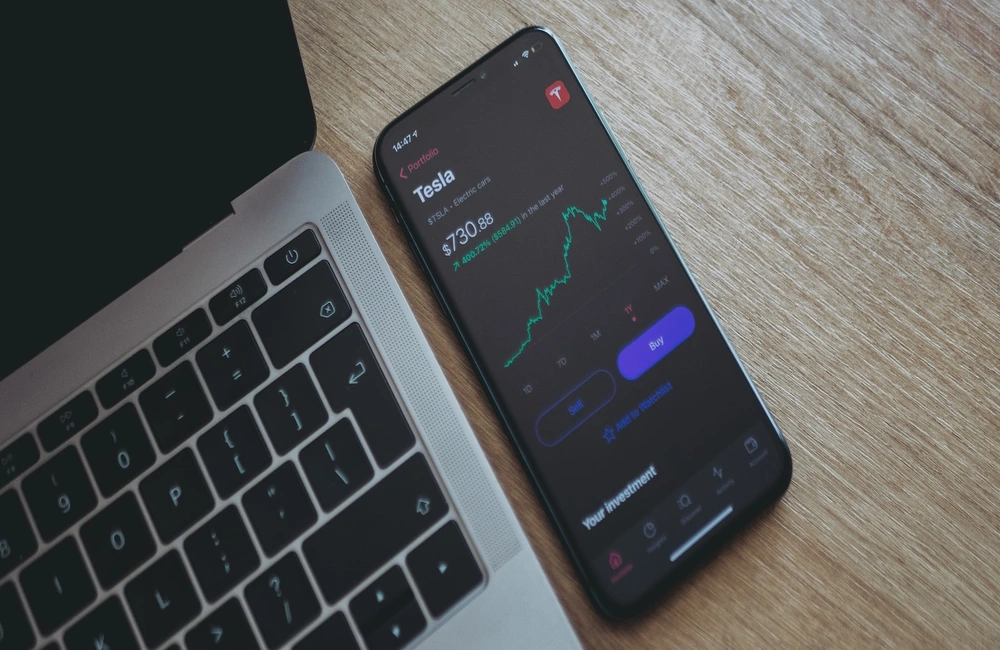ASX futures were 14 points or 0.2 percent lower at 6909 as 7:00am AEDT this morning, indicating a dip at the open.
US stocks swings were choppy on Monday as investors perused a slew of earnings updates for clues as to how higher inflation was affecting companies and consumers.
The S&P 500 slipped 5.13 points, or 0.1 percent, to 4140.06. The Nasdaq Composite fell 13.10 points, or 0.1%, to 12644.46, after moving in and out of positive territory for much of the afternoon. The tech-heavy index had also flirted earlier in the day with the possibility of escaping from its bear market. The Dow Jones Industrial Average rose 29.07 points, or 0.1 percent, to 32,832.54 points.
Nvidia, another tech bellwether, dropped 6.3 percent, or $11.96, to $177.93 after it released quarterly revenue figures well below what analysts expected. The company said it anticipated difficult market conditions would continue into the third quarter. Shares of Palantir Technologies fell $1.63, or 14 percent, to $9.82 after it reported guidance that was below the Wall Street estimates.
In commodity markets, Brent crude firmed 1.41% to $US96.26 a barrel, gold added 0.75% to US$1,788.86.
In local fixed income, 2 year Australian government bonds increased in yield to 2.65% and 10 years increased to 3.2%. Meanwhile, the yield on 2 Year US Treasury Notes decreased to 3.21% and the yield on 10 Year US Treasury Notes rose to 2.76%.
The Australian dollar plunged to 69.80 US cents from 69.12 at the close. The Wall Street Journal Dollar Index, which measures the U.S. currency against 16 others, fell to 98.14.
Asia
Chinese shares finished mixed, with gains among coal miners and aerospace stocks outweighing losses for tourism-related sectors. Coal miners rebounded from recent underperformance; Yankuang Energy and Shaanxi Coal Industry jumped at least 7% apiece. AECC Aviation Power was up 3.3% and AVIC Xi’an Aircraft Industry rose 3.8% in response to China’s announcement of new military drills around Taiwan. China Tourism Group fell 4.7 percent after duty-free malls in the resort city Sanya were ordered to shut as a new Covid-19 lockdown was imposed. The Shanghai Composite Index rose 0.3% to 3236.93, while the Shenzhen Composite Index gained 0.8%, though the ChiNext Price Index fell 0.3%.
Hong Kong’s Hang Seng Index slipped 0.7% to 20065.35 as reports of new Covid-19 resurgences in places like Hainan weighed, note KGI Securities analysts. Geopolitical headwinds with the U.S. and China are also to weigh on stocks,” they add. The Hang Seng Tech Index declined 1.4 percent to 4,354.26, as technology stocks were some of the major decliners in Hong Kong. Alibaba Group, for example, lost 3.1%, as did Xiaomi Corp. Other losers included Sino Biopharmaceutical, out 2.2%. Risers included China Overseas Land & Investment, which was up 1.0%.
The Nikkei Stock Average was flat at 28,166.36 as gains in auto and bank shares offset losses in electronics and insurance shares. Suzuki Motor climbed 7.2% after its first-quarter net profit surpassed the analysts’ average estimate. Shimadzu shares fell 10%, after first-quarter net profit fell 0.5% over a year earlier. MS&AD Insurance Group Holdings slid 6.1% after net profit for the first quarter dropped 49% from a year earlier. Crowded market index Topix is 0.1% down at 1945.18.
Europe
The open in Europe actually saw a lift from the strong trading in Asia and notably ahead of a higher open in the US following the better-than-expected July non-farm payrolls last week. The pan-European Stoxx Europe 600 and Germany’s DAX added 0.8% and the French CAC 100 rose 1%.
“Even though the Hang Seng declined overnight, some other Asia markets gained a little as traders are still chewing over Friday's US job report,” say analysts at IG in a note. “Monday is pretty barren in terms of big data.”
On Monday, the FTSE 100 ended up 0.6% with gains across the board after trade data from China showed that exports climbed 18% in July.
“Still no sign of starting the beginning of the next leg lower but everyone is looking,” said Michael Hewson, chief market analyst at CMC Markets UK, in a note. The report had appeared to be good enough to set markets going, but the new week began with rises as the good news is still being taken as good news by investors,” says Chris Beauchamp, chief market analyst at online trading platform IG.
Investment platform Hargreaves Lansdown finished the day as the biggest riser, rising 7.2% after Deutsche Bank lifted its price target for the stock, followed by Rolls-Royce, which rose 4.5%.
North America
Stocks have wobbled in recent days, jolted by changing outlooks for central bank policy. The better-than-expected jobs report on Friday left investors and analysts divided. Some wondered if the Federal Reserve would keep raising interest rates briskly, while others suspected that the U.S. economy might not actually be in recession.
“I think if we do technically go into recession I think it’s going to be shorter-lived and less deep because the consumer and corporations are in pretty good shape going into this recession,” said Wiley Angell, chief investment officer with Ziegler Capital Management.
Kiran Ganesh, a multi asset strategist at UBS, said the labor market “doesn’t look like a recession in the sort of broad sense.”
“Investors are in the mood to hear some good news,” he added.
Trading volumes also tend to be thinner in August with many traders on summer holiday, which can lead to outsized moves, analysts said. Meanwhile it was quiet at the office for those still at work, with U.S. inflation data for July due Wednesday expected to guide markets more. Of course, an unexpected development there could send markets back down in a hurry.
His firm, Independent Advisor Alliance, has recently added additional health care and small- and mid-sized technology companies to its portfolios and has kept exposure to defensive sectors such as consumer staples and utilities. “We were taking less risk early on, now, I think it’s probably more neutral,” he said.
“I don’t think companies are going to be able to pass these rapidly rising input prices on to consumers in the next few quarters,” said Sandi Bragar, the chief client officer at Aspiriant.
"This market wants to go up. “I think it is very much on inflation and feeling like the Fed is going to do a good job in fighting inflation and not seeing anything super controversial there,” Ms. Bragar said. “Our concern is that the market is taking its eye off the ball with profit margins.”
Tesla shares rose $6.76, or 0.8 percent, to $871.27. On Sunday, the U.S. Senate approved a bill to spend billions of dollars on climate, including the extension of a tax incentive for electric vehicles.
Signify Health added $2.18, or 11 percent, to $22.05 after The Wall Street Journal reported that the drugstore chain CVS Health plans to make an offer for the company. Global Blood Therapeutics shares were up $2.76, or 4.3 percent, to $66.60 after Pfizer said it would acquire the company for $5.4 billion.
























